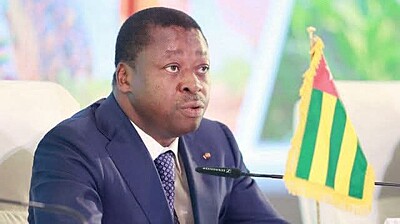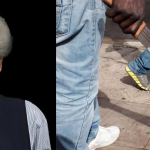
Togolese Government Accuses ‘Foreign Actors’ of Inciting Violence in Protests Against Gnassingbé’s Rule

The Togolese government has condemned what it described as “acts of destabilisation and violence” that occurred from June 26 to 28. Authorities in a statement released on June 29 stated that most of the individuals involved in the protests reside abroad and accused them of using social media and foreign media platforms to spread false information and AI-generated or unrelated images to incite violence and undermine the constitutional order.
It will be recalled that for three days, Togolese youth protested against President Faure Gnassingbé’s prolonged grip on power. The demonstrations, which began on Thursday, June 26, in several neighbourhoods of the capital, Lomé, have drawn a forceful response from the government, which now claims the unrest was “orchestrated from outside” the country.
However, the protests are said to have been driven by domestic frustrations. Sparked by recent constitutional changes that critics say entrench Faure Gnassingbé’s rule, the demonstrations were primarily organised by local civil society groups and activists.
Protesters took to the streets demanding the president’s resignation, the release of political prisoners, and improved living conditions. Security forces responded with heavy-handed tactics. Tear gas was deployed to disperse crowds, and plain-clothed officers reportedly entered homes to arrest suspected protest organisers.
In opposition strongholds like Bè, roads were blocked with burning tires and shops shuttered. Human rights groups, including Amnesty International, have criticised the government’s crackdown, citing reports of torture and the arbitrary arrest of dozens of demonstrators.
President Gnassingbé, who has ruled since 2005 after succeeding his father, recently assumed a powerful new role under a restructured political system. A constitutional revision passed in May 2024 transitioned Togo from a presidential to a parliamentary system, granting real executive power to the president of the council of ministers—a role now held by Gnassingbé, without term limits.
The government insists that the recent unrest was not a legitimate expression of dissent but rather a coordinated effort to destabilise the nation. Officials allege that “troublemakers” exploited vulnerable youth and incited them to commit acts of vandalism and destruction. Foreign nationals allegedly involved have been arrested and are now facing summary judicial proceedings.
Despite the turmoil, the government praised the broader Togolese population for maintaining calm, stating that the majority continued their daily activities “with maturity and peace.”
Opinion: Their Tribal Loyalties Are Stronger Than Their Sense of Common Nationhood
About The Author
Related Articles
Asake Sets New Billboard Afrobeats Record as Chart Presence Grows
Asake has further cemented his place as one of Afrobeats’ most dominant...
ByWest Africa WeeklyJanuary 29, 2026Nigerians Lament PayPal’s Return as Old Wounds Resurface
PayPal’s reentry into Nigeria through a partnership with local fintech company Paga...
ByWest Africa WeeklyJanuary 29, 2026Tanzania Eyes Gold Sales as Aid Declines and Infrastructure Needs Grow
Tanzania is weighing plans to sell part of its gold reserves to...
ByWest Africa WeeklyJanuary 29, 2026Mali Tightens Grip on Explosives Supply With New Majority Stake
The Malian government has taken majority ownership of a civil explosives manufacturing...
ByWest Africa WeeklyJanuary 29, 2026












Leave a comment